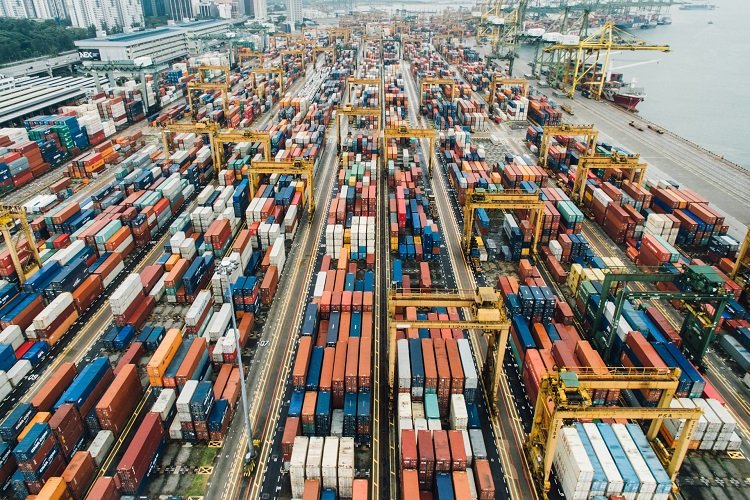
Top 7 Challenges Import Export Companies Face And Their Solutions
Author:White Fox Corporation
Published on:Jun 23 2025
Have you ever wondered how products from one country make their way to another?
Like how your favorite smartphone, clothes, or even snacks travel thousands of miles before reaching your hands?
Behind this magic are Import Export Companies, the experts who manage this complicated process called import export management.
Global trade hit a record $33 trillion in 2024, showing a 3% increase. This growth came from strong services and increased trade in developing countries.
But guess what? Running an import-export business is not always smooth sailing. There are many challenges these companies face every day.
In this blog, we’ll explore the Top 7 Challenges Import Export Companies face, and how they solve them.
What Do Import Export Companies Do?
Before we get into the challenges, let’s quickly understand what import export companies are all about.
They are middlemen who help businesses buy products from other countries (import) or sell their products to foreign buyers (export). Their job includes managing all the paperwork, rules, and logistics that come with shipping goods across borders.
What Services Do Import Export Companies Offer?
-
Handling Customs and Paperwork: Every country has rules for imports and exports. These companies help make sure all documents are correct so goods don’t get stuck.
-
Shipping and Logistics: They arrange transportation by sea, air, or land to move products efficiently.
-
Market Research: They help businesses understand new markets by providing info on demand, pricing, and regulations.
-
Supplier and Buyer Connections: Import export companies connect businesses with trustworthy suppliers or buyers overseas.
-
Risk Management: They guide how to avoid risks like fraud, delays, or damaged goods.
-
Currency Exchange and Payment Solutions: Helping with money transactions safely across countries.
-
Storage and Packaging: Ensuring goods are packaged properly and stored safely during transit.
According to Thomson Reuters Institute Global Trade Report shows that 74% of trade professionals worry about supply chain disruptions. Additionally, 52% are concerned about export control laws driven by geopolitical issues.
How Do Import Export Companies Support Small Businesses?
Small businesses often want to sell their products worldwide but don’t know where to start. This is where India export-import companies or any import export firms step in.
They Help Small Businesses By:
-
Simplifying Complex Rules: Import export management can be tricky, and these companies handle it for you.
-
Reducing Costs: They use their network and experience to get better shipping rates.
-
Finding Reliable Buyers/Suppliers: This reduces the risk of scams.
-
Providing Personalized Export and Import Services: Tailored support depending on the business size and product type.
-
Offering Training and Guidance: Teaching small businesses about international trade.
Top 7 Challenges Import Export Companies Face And Their Solutions
Running an import export business is exciting but challenging. Let’s explore the seven biggest challenges these companies face and how they solve them.
1. Complex Customs and Regulations

Every country has different customs laws, taxes, and import-export restrictions. This can confuse even the best companies.
Why is this a problem?
-
Goods can be delayed at borders.
-
Extra taxes or fines may be charged.
-
Some products might be banned.
How do companies solve it?
-
Hire experts who know the laws inside out.
-
Use software to track changing regulations.
-
Work closely with customs officials.
-
Educate clients about rules to avoid mistakes.
2. Currency Fluctuations and Payment Risks
International trade means dealing with different currencies, which can change value quickly.
Why is this tricky?
-
Payment amounts may change if exchange rates fluctuate.
-
Risk of non-payment by buyers.
-
Banks may charge high fees.
Solutions used:
-
Use forward contracts to lock exchange rates.
-
Work with trusted financial institutions.
-
Offer secure payment methods like letters of credit.
-
Provide currency risk advice as part of import export management.
3. Finding Reliable Partners Overseas

Trust is everything in trade. Import export companies need dependable suppliers and buyers.
The challenge:
-
Risk of fraud or poor-quality goods.
-
Communication issues due to time zones or language.
-
Different business cultures.
How they handle it:
-
Verify partners through references and background checks.
-
Build long-term relationships.
-
Use contracts that clearly state terms.
-
Employ translators or local agents.
4. Logistics and Transportation Issues
Shipping goods internationally can face many hurdles like delays, damage, or lost cargo.
Common problems:
-
Weather disruptions.
-
Incomplete or wrong documentation.
-
Port strikes or customs delays.
How do they manage?
-
Choose reliable shipping companies.
-
Insure goods during transit.
-
Track shipments using technology.
-
Prepare all paperwork carefully.
In 2024, U.S. logistics spending hit $2.6 trillion, making up about 8.7% of GDP. In 2025, spending is facing new ups and downs because of uncertain trade policies.
5. Language and Cultural Barriers
Different languages and customs can cause misunderstandings.
Why does it matter?
-
Wrong product specifications.
-
Miscommunication in negotiations.
-
Marketing messages not fitting local culture.
What import export companies do:
-
Hire multilingual staff.
-
Research cultural norms.
-
Provide translation services.
-
Localize marketing materials.
6. Compliance with Environmental and Safety Standards
Countries now have strict rules on environmental impact and product safety.
The challenge:
-
Products must meet different standards.
-
Non-compliance can cause rejection or fines.
Solutions:
-
Stay updated on global standards.
-
Test products before shipping.
-
Use eco-friendly packaging.
-
Provide certification assistance as part of export and import services.
7. Managing Costs and Profit Margins

Import export businesses have many costs including shipping, customs, storage, and more. Managing these is tough.
What’s the challenge?
-
Costs can suddenly increase.
-
Price competition is fierce.
-
Profit margins can shrink.
How companies cope:
-
Negotiate bulk shipping rates.
-
Optimize supply chains.
-
Use technology to reduce paperwork time.
-
Offer value-added services to justify pricing.
Why Should Businesses Work With Import Export Companies?
You might ask, “Why not just do it myself?” That’s a good question!
Here’s why most businesses prefer experts:
-
They save time by handling all the complicated steps.
-
They reduce risks of delays and legal troubles.
-
They help find better prices and buyers.
-
They provide trusted advice on export and import services.
-
Especially in countries like India, India export-import companies have deep knowledge of local and global markets.
Conclusion
Import-export business is like a bridge connecting countries, cultures, and markets. But building and managing this bridge is not easy. That’s why Import Export Companies play a crucial role in making international trade smoother and safer.
They face many challenges every day, but with experience, technology, and strong networks, they find smart solutions. Whether you’re a small business or a large company, partnering with a trusted import-export company can open new doors for your products and help you grow globally.
Need Help with Import Export Management?
At Whitefox Corporation, we understand the challenges and opportunities of international trade. Whether you’re a new exporter, or a growing company, we provide end-to-end import export management and export and import services tailored to your goals.
Let’s take your products across borders safely, profitably, and with confidence.
Contact Whitefox Corporation today and start your global journey.


